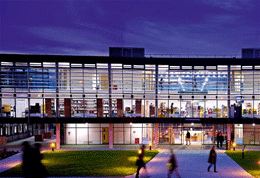13th Jan 2016 5:00pm-6:30pm
M2 Boardroom, Grand Parade
Talk

Merryn Haines-Gadd, PhD Candidate, University of Brighton
'Our Digital and Analogue Experience with Light: From Ownership to Usership in a Circular Economy.'
Abstract
The lighting industry is currently under going a systems shift; a bulb, once a consumable, is now a long life product. This is just one example developments taking place across many other sectors; new technologies, such as the Internet of Things, are creating exciting opportunities for innovation, challenging designers and researchers to be more mindful of lifecycle thinking and durability, but also prompting us to consider how this may affect the way we use and consume products in the future.
Traditional thinking regarding ownership has evolved in recent years, enabling new modes of consumption to become common place; with some services replacing products entirely, it has been suggested that we are transforming into a ‘Pay-as-you-live’ generation, adopting a more lightweight living lifestyle. Product Service Systems (PSSs) have been proposed as one of these alternatives; not only as a practice for mitigating idle capacity and wasteful patterns of use but also as a vehicle for value creation for consumers through service innovation. Many researchers have extensively explored these frameworks, determining key factors and proposing models however little research has been conducted on the role of the consumer, and the potential of experience design and meaning driven design as a facilitator for adoption at a business to consumer level.
This project aims to explore and identify key elements of Circular Design, Emotionally Durable Design, Brand management, Service Design, Product Attachment, Modes of Consumption, Psychology of Ownership and Experience Design in order to uncover and gain understanding of consumer preferences and drivers for consumption. These insights will be used to design Emotionally Durable Service Systems that intend to provide value and benefits to the consumer across the whole lifecycle of the product from delivery to take back.
A systematic, holistic, design thinking approach will be adopted to ensure both design intervention and business model innovation are considered, utilising mixed methods in this practice-led project.
The study will begin with inductive reasoning of the literature and a state of art, along with expert interviews, surveys and Auto-ethnographic narrative method for data collection.
This knowledge will then be distilled into a framework to both ideate and validate concepts to be prototyped and tested with Philips Lighting. An additional 2 case studies with other organisations will also be conducted to further test the commercial application of Emotionally Durable Designed product service concepts in an effort to advance the thinking within this space and explore the transforming wants and needs of the modern day consumer.
Melaneia Warwick, PhD Candidate, University of Brighton
'The use of qualitative data analysis software in participatory action research: navigating the terrain.'
Abstract
A complication to the cross-disciplinary terrain inhabited by this doctoral study is what the literature identifies as the stunted development of data analysis approaches and tools, in particular where inclusive methods are the goal. It is proposed that qualitative data software can go some way to addressing these gaps in knowledge by enabling rigorous, transparent and creative pathways to be developed through complex data sets. Combined, these benefits speak to concerns in the cross-disciplinary literature and are a timely intervention in the participatory arts quality debate.
The Arts and Humanities Research Forum (AHRF) is a research forum for staff and students in the University’s Arts and Humanities College generated by the Doctoral College and the Centre for Research and Development The AHRF is a fortnightly event series open to all research students and staff as well as open to the public as audience members. The forum provides a regular facilitative context in which researchers can trial or rehearse research designs, argue for and justify appropriate methodological approaches and frameworks, and debate theory/practice relationships in their studies.
Please contact J.Lane2@Brighton.ac.uk for further details